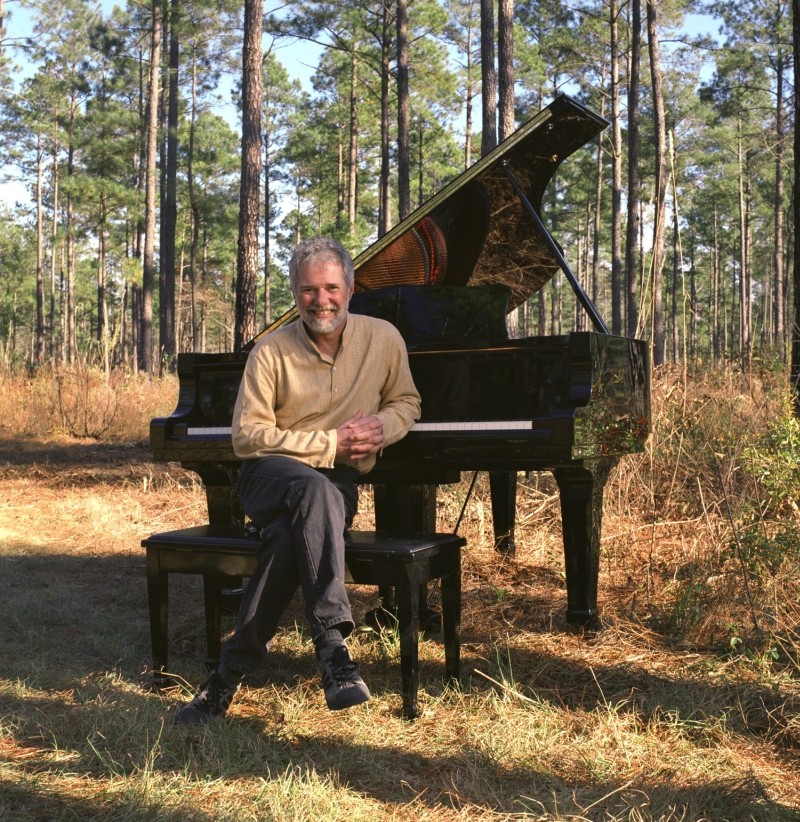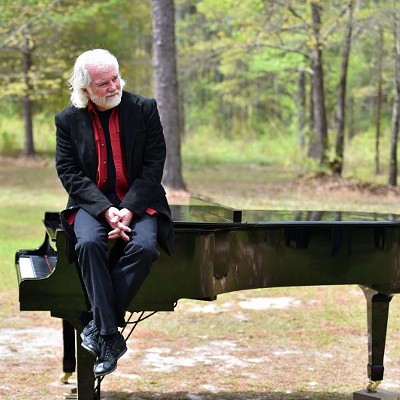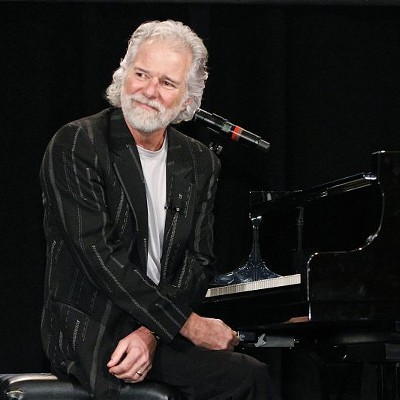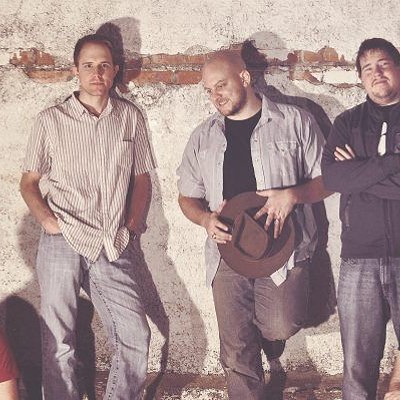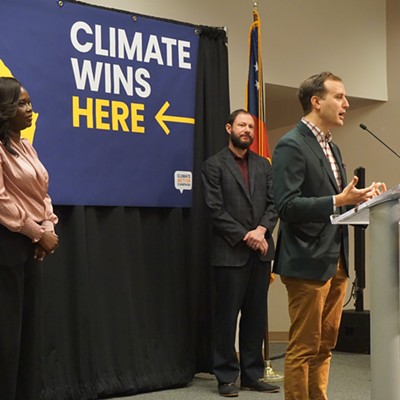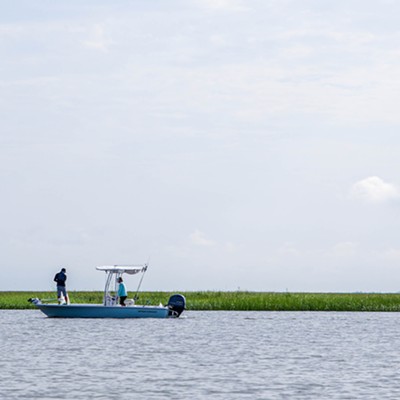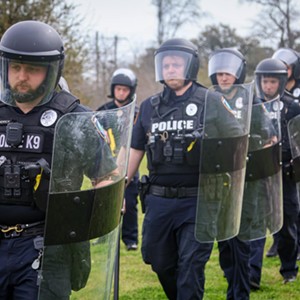AFTER FOUR decades of playing with some of the world's greatest musicians, you'd think pianist Chuck Leavell could rest on his laurels. Literally.
In addition to a career that includes touring and recording with Eric Clapton, Gregg Allman and the Rolling Stones, the award-winning pianist also maintains a successful tree farming enterprise in Middle Georgia, growing loblolly pines and other species for commercial use.
For over 30 years, Leavell and his wife, Rose Lane, have overseen a tract of 3000 acres of pristine forest near Macon they call Charlane Plantation, sustainably harvesting wood and hosting retreats to promote the appreciation and conservation of our natural resources.
But retirement is not in this man's plan.
Not only will Leavell keep up with Mick Jagger and the rest of the boys on their upcoming North American tour, he's just begun to advocate for sensible and sustainable solutions for environmental issues.
A fixture in Washington, DC's eco-lobby, he is the author of four books, including Forever Green: The History and Hope of the American Forest, and the co-founder of the popular Mother Nature Network website. He's been recognized by the Georgia Conservancy, the National Arbor Day Foundation and countless other conservation organizations and is only one of three people in history to be named an Honorary Forester by the U.S. Forest Service.
On May 1, Leavell will be the inaugural speaker at Armstrong State University's Mark Finlay Memorial Lecture Series, an annual event commemorating the work of the late professor who was killed in a car accident in 2013.
In his talk, Leavell will address the importance of "stewardships and partnerships" in the future of conservation and finish up by tickling the ivories with a few songs.
Connect spoke with Leavell in between morning rehearsal and his daily walk in the woods.
Let's talk trees.
Chuck Leavell: I believe trees are the most important natural resource that we have.
Trees give us the material to make books and magazines and newspapers and packaging products; cellulose is even in shampoo and chewing gum. They're how we build our homes and our schools and our churches. They give us clean air and clean water and give shelter to all manner of wildlife. They also give us a source of renewable energy in the form of biomass.
They also give a lot of spiritual and emotional pleasure. I love the quote by Ralph Waldo Emerson, "in the woods we return to reason and faith." I think there's a lot to that.
Tell us about Charlane Plantation.
CL: The name is from my proper first name, Charles, and my wife Rose's middle name, Lane. This is family land that Rose Lane inherited from her grandmother back in 1981. What she inherited was a diversified farm with cattle, row crops and some timber. I realized fairly quickly that if I wanted to pursue my musical career, row cropping and cattle farming were going to be very difficult—it's a lot of day-to-day work.
But the more I thought about forestry and all the things that forests and trees do for us, the more interested I became. The first connection was when I asked myself where does this wonderful musical instrument that has brought me so much joy and a great career come from? Of course that's the resource of wood.
Then I began studying, checking out books from the library and talking to other landowners. Eventually I enrolled in a correspondence course while I was touring with a little Texas blues band called the Fabulous Thunderbirds. I would do my homework while we were on the bus and backstage or my hotel room.
It was very useful, by no means as intense as a four-year college degree or anything, but it taught me the basic knowledge. More importantly, it gave me confidence to begin to manage our place for sustainable forestry. That was back in the early 80s, and I still consider myself a student of forestry and the environment—I have as an equal passion for it as I do for music.
You mentioned biomass. While they come from sustainably-managed forests, wood pellets can release as much carbon dioxide as coal when burned for energy. How does it fit into a sustainable energy plan?
CL: I think it's just part of the plan. I'm also a very strong advocate of wind and solar power and other renewable resources, and I'm very, very pleased with the way that technology has moved so positively in that direction.
I think the controversy around biomass stems from the concern that the trees are not being managed sustainably, and that's not the case at all. No one who's engaged in forestry wants to put themselves out of business.
CL: Do I think we should use biomass from trees as our sole energy source? Of course not. Yes, there is carbon release when you burn pellets for fuel, but you have to remember that those trees were sequestered carbon their whole lives, so it's actually a net zero, and maybe even a net gain in terms of carbon release.
You're often referred to a "common sense environmentalist." What does that mean?
CL: Well, I think there are radicals on both sides of the spectrum, whether we're talking about politics or the environment. To me, it's all about balance.
It's about balancing the need to use resources for practical purposes with making sure that we have protected areas that leave totally natural. We have our national parks and wildlife protected areas, and we need to make sure that exists not just in this country but all over the planet.
There's also the development aspect. In the last book I wrote, Growing a Better America: Smart, Strong and Sustainable, one of the main themes was the fact that we have this incredible growth in our country and all over the planet and when we look at the pressures that puts on our natural resources and our lands, we realize that it's time to really be careful about how we look at all the options we have.
My wife and I have part of our property under conservation easement, which means we promise never to have it developed, no residential or shopping malls or anything. We still maintain the right to manage it for natural purposes, growing it for timber and for wildlife enhancement. There is a balance to be had.
Why are partnerships so important when we talk about the environment?
CL: No one can do this alone. You can't save the world with one person or one organization. It takes strategic partnerships—private, public, corporate—everybody working together to make sure this thing comes out like we want it to. In the past, a lot of these governmental agencies and environmental organizations were at odds with each other. You wouldn't have seen the Audubon Society sit down with Plum Creek Timber. Now that's changing. We realize we all need each other, and that's a very positive thing.
Do any of your musical colleagues share your passion for conservation? Do you and Keith Richards talk trees on the tour bus?
CL: [laughs] Well, all kinds of subject matter comes up when you live together on tour. I've done 33 years with the Rolling Stones and I started my work at forestry basically at the same time, so they're well aware that I've been engaged in this for a long time.
We're all grandfathers, and we have concerns about the future. It may not be something we talk about every day, but the thought is there. Everybody wants to do the right thing.
What prompted you to start the Mother Nature Network?
CL: The internet is basically the world's library, but we realized there were few resources for environmental subject matter out there at the time. You had a lot of well-meaning organizations like the Sierra Club and Riverkeepers with sites relating to one or two issues. We wanted to create a site with a broad spectrum from A-Z concerning the environment that was non-political and had no agenda other than being accurate and easy to navigate.
We didn't have any idea whether it would be successful, we just saw the need. And now we're the most visited environmental site out there and expanding into social and corporate responsibility issues.
A lot of sites, like the EPA's and the Dept. of Energy's, are accurate but they're written for academics. MNN is meant to help people like me; I mean, I'm not a scientist.
Maybe you're not a scientist, but you are an Honorary Forester with the U.S. Forest Service. There are only three, right?
CL: Yes, that's right! The first was Betty White—she really wanted to join the National Park Service and be a ranger when she was young, but at the time they didn't accept women. But she kept that passion for the environment all her life. I was the second, and the third is Arnold Schwarzenegger for the conservation work he did while he was governor of California.
Did you get the cool hat?
CL: I did get the cool hat! I had it way before Pharrell Williams!
Are you familiar with Dr. Finlay?
CL: I never got to meet Dr. Finlay, but I'm aware of his reputation and the high regard that people hold of him and his dedication to environmental matters. It's a real honor to do this.
How do you keep up the energy to be a legendary international rock star?
CL: Most of us are pretty disciplined about it. I already work out and stay active, but I usually start beefing up my exercise routine before a tour. I also sit behind this piano every day for hours, even before we start rehearsing.
People think it's "oh, it's rock 'n' roll, you just show up." But it takes measured work and discipline.
Kind of like sustainably managing a forest so that it stays healthy?
CL: Exactly! It's all about the balance. cs

